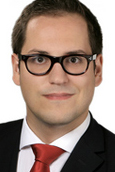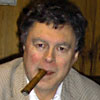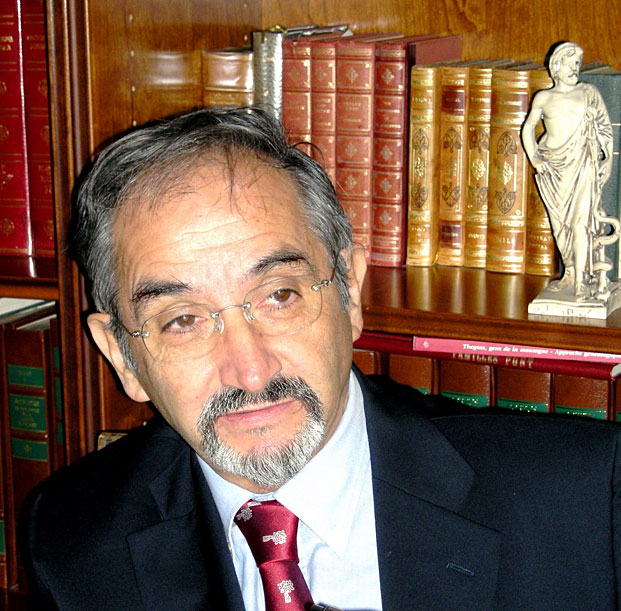Frederik Cyrus Roeder

Frederik Roeder is a German health economist. He studied hospital management, health economics and international business at the universities of Goettingen (Germany), Bayreuth (Germany), Maribor (Slovenia), and Tongji Shanghai (China). He has worked as a Visiting Professor for Health Economics at the Lithuanian University of Health Sciences and as a Visiting Professor for Healthcare Management and Economics at Ilia State University (Georgia). Fred Roeder is the Managing Director of Healthcare Solutions, a service focused on know-how transfer and policy advise for healthcare systems in transition.
Michael Schlander
Professor Michael Schlander MD, PhD, MBA is a health economist at the University of Heidelberg and a professor of health care and innovation management at the University of Applied Economic Sciences, Ludwigshafen. He is the founder and scientific director of the Institute for Innovation and Valuation in Health Care (Inno Val HC) a not for profit institute based in Eschborn, Germany. Professor Schlander who is also a physician has written ground-breaking studies on the role and limits of current evaluation methodology in adminstrative assessments of medical innovation.
Nicoleta Acatrinei
Graduate in economics and in theology, Nicoleta is currently preparing a PhD at the Swiss Federal Polytechnicum (ETH) in Zurich. She has spoken and written on topics related to ethics, economy and theology in Switzerland, China, Denmark and others. She is the author of "St Jean Chrysostome et l'Homo Oeconomicus" a scholarly work that explores the theological roots of market ethics. She has joined Medicine & Liberty in 2009 as our research fellow in charge of Ethics in Economics.
Francis Thevoz
Dr Francis Thevoz is a Cardiovascular surgeon by training. Past-president of the Société Vaudoise de Médecine he is also a former councilor of the City of Lausanne where he served as Director of finances. He is currently a member of the finance commision of the city's parliament. Francis will notably participate in the development of MedLib's, Privamed-Pro project.
Sophie Crespo
Sophie Crespo MD, our special projects & editorial consultant based in Geneva, graduated from Basel University Medical School. She holds specialist titles in intern al medicine and anesthesiology.
Contact: sophiecrespomd@medlib.ch
Fabienne Gay-Crosier
Dr Fabienne Gay-Crosier, joined MedLib's Medical Advisory Council in 2014. She is past president of the professional policy commisssion at the Swiss Society of Clinical Allergology and Immunology and is a firm advocate of professional independence for physicians. Author of "Geneva's White Paper on Allergy" Fillon Impr. Oct. 2015.
Loredana D'Amato Sizonenko MD
Dr D'Amato Sizonenko is a geneticist specialized in rare diseases. She is presently Coordinator for Switzerland of Orphanet, an international database of information on rare diseases and orphan drugs for all publics, designed to contribute to the improvement of the diagnosis, care and treatment of patients with rare diseases.
Martín Krause
Martin Krause is the diirector of the Centro de Investigations de instituciones y Mercados de Argentina: professor of Economics at the University of Buenos Aires.
Philip Stevens
Philip Stevens, Director of Policy at International Policy Network, London is the author of numerous health policy publications, including Fighting the diseases of Poverty (2007), Free trade for better health (2006) and The 10/90 Gap and the diseases of poverty (2004). He has also held research positions at the Adam Smith Institute and Reform in London and holds degrees from the London School of Economics and Durham University.
Shahnaz Radjy
After graduating in Biology at UPenn in Philadelphia, Ms Shahnaz Radjy was active in humanitarian action in Bolivian hospitals, and founded an A-TIC internet venture in Bolivia. She has also organized events for the International Labor Organization in Geneva and worked for the Davos World Economic Forum. Shahnaz is now based in NY and works as senior communications specialist for Vitality.
Bart Madden
Bartley Madden is an independent researcher who has developed "Dual Tracking": a fast lane for access to experimetal medicines, that also introduces an open database on new therapies. Bart Maddens concept is supported by Vernon Smith, Nobel prize in economics 2002 and by other reputed US economists. He has authored a monograph: "Dual Tracking, More Choices Better Health" edited by the Heartland Institute, Chicago.
Stefan Metzeler
Graduate from the Ecole Polytechnique Fédéerale de Lausanne (EPFL). Information and technology specialist, owner at Amadeus IT solutions. Swiss representative fo the International Society for Individual Liberty ISIL.
Contact: smetzeler@medlib.ch
Pierre Bessard
Executive Director of the Institut Constant de Rebecque, Lausanne, and President of the Liberales Institut, Zurich
Henri Siegenthaler
President of the Swiss Society for the Independence of medicine and editor in chief of « Der Arzt und sein Patient / Le Médecin et son Patient » Journal. Author of "Serons nous tous euthanasiés?" Ed.Cabedita (2015).
Pierre Lemieux

Professor of economics at the University of Québec in Outaouais. Author of "Le Droit de porter des armes"(1993), "Comprendre l'économie (2008) and other works such as "Public Health Insurance under a Non Benevolent State". Editor of Liberty in Canada online tribune.
Georges Lane
Georges Lane is a Professor of economics at the University of Paris-Dauphine where he teaches insurance economics.
Philip Stevens
Philip Stevens, Director of Policy
Philip is the author of numerous health policy publications, including Fighting the diseases of Poverty (2007), Free trade for better health (2006) and The 10/90 Gap and the diseases of poverty (2004). His writings on health policy have appeared in a wide range of international newspapers. Philip has also held research positions at the Adam Smith Institute and Reform in London, and spent several years as a management consultant. He holds degrees from the London School of Economics and Durham University.
Ernest Truffer
Swiss ENT surgeon and medical philosopher. One of the founding members of IATROS, a world organization of private and independent physicians. Writes regularly on medical ethics and other issues in various medical journals and in his blog.
Ernest unfortunately passed away on March 11th, 2015 and wil be deeply regretted by all those who knew him. The founding principles of Medicine and Liberty were strongly influenced by his profound understanding of the medical mission and his uncompromising attachment to Hippocratic ethics.
Gabriel Calzada
Professor of economics at the Universidad Rey Juan Carlos, Madrid. Founder of Medicina en Libertad (MedLib.es) and of Madrid's Instituto Juan de Mariana.
Gabriel is president of Francisco Marroquin University in Guatemala and member of the presidential board of the prestigious Mont Pelerin Society
Victoria Curzon Price
Professor of economics at the University of Geneva. President of Institut Constant de Rebecque, Lausanne. Member of Geneva Parlliament. Past president of the Mont Pelerin Society.
Rudolf Mayer
A practicing Opthalmologist in Lausanne. Active in Swiss medical professional politics he is a staunch defender of medical autonomy. He is on the editorial board of the Swiss medical journal "Arzt un Patient" (Physician and Patient)
Alphonse Crespo
Alphonse Crespo founder and executive director of Medicine and Liberty. Swiss orthopedic surgeon, author of Esculape Foudroyé (Les Belles Lettres 1991), ISBN 2-251-39008-1 and of numerous essays and articles such as Black Market Medicine an Ethical alternative to State Control, Outlawing Medicine or The End of Welfare and its effect on the Poor. President of the Cercle de philosophie politique Benjamin Constant at the Institut Libéral a Swiss think tank founded in 1979. Also conducts Med-Consilium a Swiss accident insurance consulting & assessment independent service.
Serban Sichitiu
Reputed paediatrician practicing in Lausanne. He was one of the founders of Switzerland's Patient and Physician Union active in the defense of patient and phyisician rights and liberties.
Medicine & Liberty
Sentier de la Tour-Carrée 9
CH-1800 Vevey - Switzerland
Tel & fax: 41 21 922 60 82
info@medlib.ch
Caisse Unique : autopsie
Comment extirper les services de santé du XIXe siècle
Le régime d'assurance-maladie hélvétique souffre du manque de concurrence entretenu par les groupes de pression qui le réglementent et du manque de liberté offerte à ceux qui le subissent et le financent. Liquider un cartel de 85 caisses-maladie pour le remplacer par le monopole d' une caisse unique n'aurait pas guéri pas le mal. Un monopole du rationnement ne comporte cependant pas que des inconvénients: il permet au moins à ses vicitimes de regarder l'ennemi droit dans les yeux.
La Caisse-Unique, refusée par le peuple n'aurait été qu'un pis-aller. Tant que l'on ne remettra pas radicalement en question des systèmes de santé conçus pour les tourments sociaux du XIXe siècle, l’effet des reformettes politiciennes ne dépassera guère celui du placebo. L'analogie est toutefois injuste: un placébo n'a jamais tué personne
Les alternatives libérales à notre système de Santé existent. Les comptes d’épargne santé, issus de la société civile et qui apparaissent dans certains pays industrialisés montrent une voie à suivre : ils permettent aux payeurs de reprendre le contrôle de leurs dépenses médicales et obligent les prestataires médicaux à adapter leur offre et leurs tarifs à la demande du marché.
Sur le front industriel, une défiscalisation sectorielle aurait un effet plus radical sur le coût du médicament que la promotion obsessionnelle de génériques qui ne profite qu’aux copieurs et coupe les ailes aux chercheurs. Un respect plus grand du brevet et de la propriété intellectuelle permettrait aux industries novatrices d'amortir sur une plus longue durée, les investissements nécessaires au dévelopement de substances curatrices. Ceci conduirait, en dernière analyse, par les mécanismes propres à l'innovation thérapeutique et au marché libre, vers une médecine plus efficace progressant en harmonie avec le potentiel économique réel de la société.
Et les pauvres? Des problèmes de gestion et de trésorerie plombent l’aide étatique aux plus défavorisés : en reconnaissant ouvertement la faillite de ses systèmes de sécurité sociale et l’échec de la solidarité forcée, l’Etat ouvrirait le champ de la santé à l’entraide volontaire et à une philanthropie privée toujours plus dynamique.
En votant Non à la Caisse Unique plus de 70% des citoyens Suisses ont refusé une potion inspirée de recettes collectivistes conçues au XIXe siècle. Il ne leur reste plus qu'a decouvrir, à l'aube du XXIe sièce, l'effet thérapeutique d'une liberté qui fait partie de leur patrimoine, mais dont ils se privent dans un domaine aussi essentiel que celui de leur santé.
February 10, 2008

 RSS feed
RSS feed